The contest Jury is composed of 25 highly qualified scientists and engineers with worldwide reputations in their chosen field. The jury carry out their duties at the contest as independent scientific experts and not as representatives of any institution, organisation or country. The European Commission appoints the Jury annually, basing its selection on the scientific and technological needs of the contest. They jury are selected both from academia and industry. The Commission ensures an appropriate geographical and gender balance. Jury members normally remain on the jury for up to 5 years. In exceptional circumstances the EC reserves the right to appoint Jury members for more than 5 terms.
The role of the Jury at EUCYS is of the utmost importance. The jury follow the Jury Rules and Guidelines established by the EC. The Jury assess and score the competing projects based on the written descriptions submitted by the projects and through interviews with the Contestants carried out during the Contest. Based on their assessment of the projects and on lengthy discussions with other jury members, the jury draw up the lists of winners of the core prizes and the special prizes. The decision of the jury is final.
This year the Commission is delighted to point out that two members of the jury are previous winners of the contest.
PRESIDENT OF THE JURY

Hungarian Academy of Sciences
HUNGARY
ATTILA BORICS
Dr. Attila Borics graduated as a chemist and a chemistry teacher from the University of Szeged in 2001, then received his PhD degree in 2005 from Creighton University (USA) for his contribution to the field of chiroptical spectroscopy and conformational analysis of peptides. Currently he is working in the Biological Research Centre of the Eötvös Loránd Research Network in Szeged (Hungary) as a senior research associate and teaching structural biology and bioinformatics at the University of Szeged. His research focuses on biomolecular structure, more specifically protein and peptide structure and interactions, conformational analysis and structure-activity studies. This includes the investigation of the three dimensional structural determinants of the biological activity of various biological compounds and drug candidates, explanation of the mechanism of action of enzymes and receptors on a structural basis and the location of interaction sites of proteins.
MEMBERS OF THE JURY
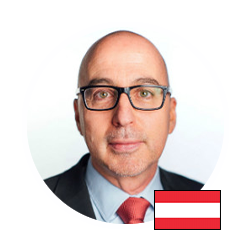
Webster Vienna University
AUSTRIA
FRANCO ALGIERI
Franco Algieri is Associate Professor of Interna onal Rela ons and Head of the Interna onal Rela ons Department at Webster Vienna Private University. Prior to that he was Director of Research at the Austrian Ins tute for European and Security Policy (AIES) and Senior Research Fellow at the Center for Applied Policy Research (C.A.P), Ludwig Maximilians University Munich. He was lecturing Poli cal Science at the Ins tut für Poli kwissenscha , Eberhard Karls University Tübingen and at the Geschwister Scholl Ins tut, Ludwig Maximilians University Munich. He was appointed Guest Professor at the School of Interna onal Studies and Senior Fellow at the Centre for European Studies, both at the Renmin University of China, Beijing. Franco Algieri studied Poli cal Science and Sinology in Freiburg, Tübingen and Taipei, and European Studies in Bruges. He received his doctorate and M.A. both from the Eberhard Karls University Tübingen, and a Diploma of Advanced European Studies from the College of Europe Bruges. His research focus covers European and Asian security issues, the European integra on process and EU-Asia rela ons, with special emphasis on EU-China rela ons.
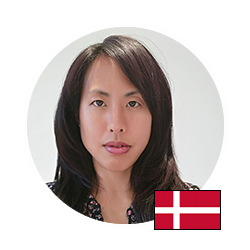
Siemens Gamesa Renewable Energy
DENMARK
VICTORIA BLOODWORTH
Dr. Victoria Bloodworth studied Aeronautical Engineering at Imperial College London, UK, earning her PhD in 2008, specialising in carbon fibre composite structures. She then spent the next eight years working at Aerotrope, a small and radical engineering consultancy based in Brighton, UK. During this time, she was part of the design team with a diverse project portfolio, providing design engineering for wind turbines, large scale artworks and zero carbon vehicles, which includes the current world speed sailing record holder Vestas Sailrocket 2. In 2017, she moved to Denmark to join the world’s largest wind turbine manufacturer, Siemens Gamesa Renewable Energy, Blade Design department where she is now at the forefront of making the next generation of wind turbine blades a reality. A British national, currently residing in Denmark, she spent her childhood years in Singapore before moving to the UK for higher education and work.
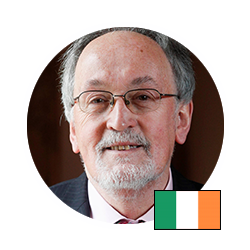
University College Dublin
IRELAND
TONY FAGAN
Professor Anthony (Tony) Fagan received his PhD in Electronic Engineering from University College Dublin (UCD) in 1978. He then spent two years working on advance modem design at Marconi Research laboratories in England. On his return to UCD in 1980 he established the DSP research group there. Through this group he has helped establish a strong signal processing industry in Ireland with many companies being founded by his research graduates, especially in the area of physical-layer communications design. Well over 100 research graduates have been produced by his group. Co-operation with industry has been a distinguishing feature of his academic career with much of his funding coming directly from these contacts. In 2016 he was awarded the Parsons medal for his work with industry. He retired from full-time academic life in 2017 but continues his love of engineering by acting as consultant to various advanced communication systems design companies.
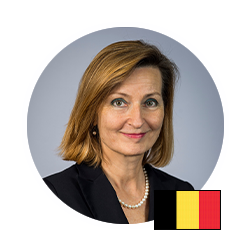
Food Drink Europe
BELGIUM
MELLA FREWEN
Mella Frewen is Director General of FoodDrinkEurope, representing Europe’s largest manufacturing industry. She has a wide experience of relations with international institutions, with the Institutions of the European Union, and trade associations across the food chain. Ms. Frewen represents the food industry in numerous high-level Advisory and Steering Committees of the EU Commission and is Vice President of the FAO/OECD Advisory Group for Responsible Business Conduct along Agricultural Supply Chains. She is also involved in several food industry-related Boards.
She has worked in the Agri-food sector in Europe for more than 30 years. She has a Master of Science degree from the National University of Ireland and worked a post-graduate course at the University of Brussels (ULB). She also holds a Harvard certificate on Agribusiness and an INSEAD certificate on International Operations Management.
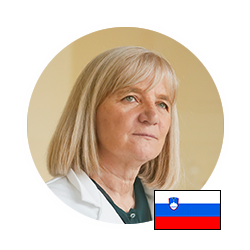
Jožef Stefan Institute
SLOVENIA
MILENA HORVAT
Prof. Dr. Milena Horvat is the head of the Department of Environmental Sciences www.environment.si (since 1997) at the Jožef Stefan Institute and the dean of the Jožef Stefan International Postgraduate School – www.mps.si (since 2016). Her main expertise is in the field of mercury research, which is interdisciplinary and covers the fields of analytical chemistry, human health, polluted areas, the marine environment, and clean technologies and sensor development. She is the author and co-author of over 300 articles in SCI journals and 24 book chapters. She has organized several international conferences and workshops and has been the guest editor of 16 special issues of journals, including environmental health perspectives, environmental research, analytical and bioanalytical chemistry, marine chemistry …). She received the national Ambassador for Science Award in 2002, the national Zois Award for Research Excellence on 2014, and the international Life of Achievement Award at ICMGP in 2019. She has been a supervisor of 18 Doctoral Dissertations and several master’s and diploma theses.
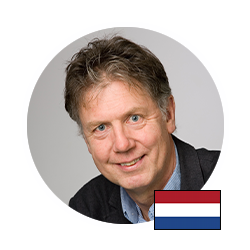
Biomass Research
THE NETHERLANDS
HANS LANGEVELD
Hans Langeveld is a tropical agronomist with a wide experience in quantifying land use practices in agriculture and food production around the globe. He focuses on sustainable food production, food and forest residue valorization, biogas, and development of biobased production chains. Hans has been an enthusiast member of the jury since 2016. His main interest is in helping students to identify the object(s) of their passion and setting out a route to develop their skills and interest in the subject.

EUROfusion (JET), Culham Science Centre
UNITED KINGDOM
MORTEN LENNHOLM
Morten Lennholm has worked in the field of Nuclear Fusion Research for the last 34 years. From a microwave and control engineering education, he developed his knowledge of plasma physics and much of his work has involved a combination of engineering and plasma physics. He has published in journals such as ‘Physical Review Letters’ and ‘Nuclear Fusion’ on the control of fusion plasma, plus in ‘Nature Communications’ to describe the potential for control of certain plasma instabilities through ‘phase space engineering’. He received his PhD degree from Eindhoven University of Technology in 2014 for his work on ‘Real Time Control of the Sawtooth Instability in Fusion Plasmas with Large Fast Ion Populations’. Based at the Culham laboratories in Abingdon, England, Morten conducts, manages and coordinates work involved in the operation of the JET Tokamak (Joint European Torus), including engineering and physics studies associated with this project. His main areas of interest include: radio frequency heating employed in Tokamak fusion experiments; plus, plasma control systems, which allow the control of a number of plasma parameters including the location of the plasma itself inside the Tokamak vacuum vessel.
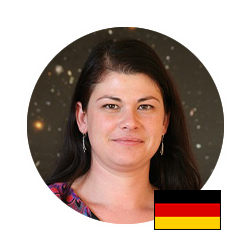
European Southern Observatory
GERMANY
MARIYA LYUBENOVA
Mariya Lyubenova holds a doctorate in astronomy from the Ludwig-Maximilians-
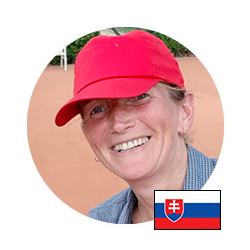
Slovak University of Technology in Bratislava
SLOVAKIA
MARIA MINAROVA
Saying briefly, I am a mathematician. Both teacher and researcher. My work fascinates me. I take pleasure in teaching of mathematics, applied mathematics and biomechanics at our technical university. I supervise final theses of students, as well. Naturally, I always use math, mostly applied math, in my research. The most of my investigations are interdisciplinary, tided up with disciplines as biomechanics, biomathematics, medicine, rheology, material science, building physics, etc. Recently I deal with data mining, optimization and uncertainty modelling and its utilization in image processing. I like sports, classical music and beautiful nature.

ESRF
FRANCE
ESTELLE MOSSOU
Physicist by training, I carried out my PhD on the structural characterization of biomedically and biotechnologically relevant filamentous systems, followed by a postdoctoral position at the Institut Laue Langevin (Grenoble, France) on method developments aimed at combining X-ray and neutron techniques for biological systems in terms of crystallography and fibre diffraction. I then carried on as instrument scientist responsible of a monochromatic single crystal neutron diffractometer. I am now part of the macromolecular crystallography group at the European Synchrotron Radiation Facility (ESRF) in Grenoble, working as support for user experiments on the state-of-the-art structural biology beamlines as well as developing pipelines for room-temperature data collection with microfluidic crystallization chips.
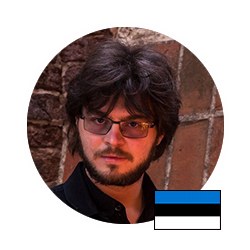
Music Education LLC
ESTONIA
MARGUS NIITSOO
Margus Niitsoo was a competitor at EUCYS 2005 where he learned that the ability to communicate his findings is at least as important a skill as actually doing research. While studying for his degrees in mathematics and computer science in University of Tartu, he actively sought ways to also improve his skills in communication, becoming a teaching assistant in university, joining a science popularization initiative and also taking as many psychology courses as he could fit into his timetable among his own courses. However, his love of mathematics did not fade, and despite the new interests, he still managed to finish his BSc and MSc together in just 3 years instead of the usual 5, which was followed by another 3 years of PhD studies in theoretical cryptography. This briefly made him famous, as he was the youngest person to get a PhD in Estonia at just 24 years of age. Obsessed with teaching and finding ways to improve it, he was then offered the job of curriculum manager which allowed him to work not only on his own teaching but also to find better ways of organizing the curriculum and finding means to support both students and lecturers in their pursuits. He thoroughly enjoyed the work, but felt that he needed to see the world outside the academia as well and so headed for the industry. Currently, Margus is the CTO of a small music education startup that is developing a tool for automatic assessment and feedback of musical performance, which again allows him to combine his twin passions of teaching and computer

Centro Nacional de Investigaciones
Cardiovasculares Carlos III (CNIC)
SPAIN
MARÍA ÁNGELES MORO SÁNCHEZ
María Ángeles Moro is Full Professor at the Spanish Centre for Cardiovascular Research (CNIC) since November 2019, where she leads the Neurovascular Pathophysiology Group. Prof. Moro also co-leads the Neurovascular Research Unit, with sites at Universidad Complutense de Madrid (UCM, where she is Full Professor of Pharmacology) and at the Health Research Institute of “12 de Octubre” University Hospital.
Prof. Moro’s group studies key questions in stroke and vascular cognitive impairment by applying different models and novel technologies, with the final aim to translate findings to patients. Her laboratory has established relevant paradigms of ischemic and hemorrhagic stroke and of the different nosological entities that account for cognitive decline driven by cardiovascular risk factors.
She participates in several consortia such as the Spanish Neurovascular Network (INVICTUS) and the Leducq Foundation Grants “Stroke-Impact” and “Circadian Effects in Stroke”.
She has published extensively in the area of neuroscience and neurological sciences, especially in the neurovascular research field. Her scientific production includes more than 170 indexed papers with more than 10000 citations and an “h-index” of 60/70 (WOS/Google Scholar).
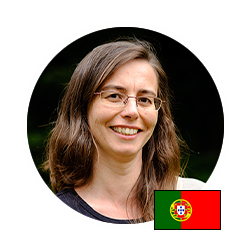
Institute of Molecular Pathology
and Immunology – PORTUGAL
LUISA PEREIRA
Luísa Pereira has a degree in Biology and a PhD in Human Population Genetics. She is a senior researcher and group leader at i3S-IPATIMUP (Institute of Research and Innovation in Health, University of Porto-Institute of Molecular Pathology and Immunology of the University of Porto), being interested in using genetics to infer the past and evolution of human populations and to evaluate susceptibility of human populations to complex diseases. She is co-author of 138 peer-reviewed papers in international journals and a book on popular science. She has been engaged in presenting her work to the general public, including young students in high schools, and regularly collaborates with local media.
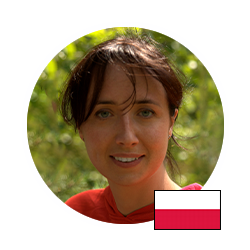
University of Warsaw
POLAND
ZUZANNA SZYMAŃSKA
Zuzanna Szymańska, Ph.D. graduated in mathematics and computer science from the Faculty of Mathematics, Informatics and Mechanics University of Warsaw. In 2010, at the Polish Academy of Sciences, she obtained her PhD degree with distinction in biology with a specialization in biophysics. Currently, she is an Assistant Professor at the Institute of Mathematics of the Polish Academy of Sciences and the Interdisciplinary Centre for Mathematical and Computational Modelling (ICM) at the University of Warsaw. Her main area of research involves developing multi-scale mathematical models in biology and medicine, particularly for processes such as the growth and spread of cancer or wound healing.
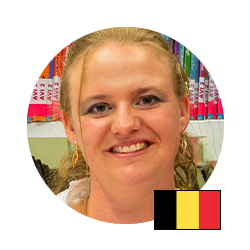
Ghent University Hospital
BELGIUM
MIRA VAN THIELEN
Mira Van Thielen has a degree in pharmaceutical as well as medical sciences. At the age of 16 years she won several (inter)national prizes with her medical project. The same time she was one of the founders of the educative youth organisation at the public oberservatory MIRA (Belgium).
Nowadays, she is working as a staff member at the department of Anaesthesiology in Leuven University Hospital (Belgium). Her research interests are devoted to a combination of physics and medical sciences.
Besides, she is a board member of ‘Jeugd, Cultuur & Wetenschap’, a scientific youth organisation in Belgium.
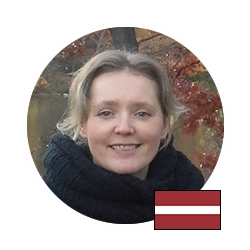
Latvian Biomedical Research and Study Centre
LATVIA
ANNA ZAJAKINA
Dr. Anna Zajakina is the head of the Cancer Gene Therapy group at Latvian Biomedical Research and Study Centre. She has completed her PhD in 2005 at University of Latvia, Molecular Virology and Biochemistry Division. She raised her expertise at University of Rostock (Germany), Uppsala University (Sweden) and University of Bordeaux (France). Dr. Zajakina is the author of more than 40 papers and conference presentations related to cancer research, molecular biology and virology issues. The main research interests involve the development of novel clinically translatable methods for cancer treatment based on gene therapy vectors and immunotherapy. Currently, main research projects are focused on delivery of therapeutic genes by viral vectors into tumours for smart regulation of tumor microenvironment in combination of polyfunctional magnetic nanoparticles. Being a national coordinator of European Biotechnology Thematic Network Association, Dr. Zajakina is actively taking part in organization and hosting of international workshops, seminars and conferences, working in cooperation with students and researchers representing various organizations and universities.
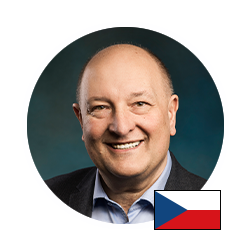
Charles University
CZECH REPUBLIC
MILAN MACEK
Prof. Milan Macek serves as the chairman of the largest academic medical/molecular genomics institution in the country, which comprises a research/diagnostics reproductive genetics centre. He was a president of the European Society of Human Genetics (ESHG), board member of the European Society for Human Reproduction and Embryology (ESHRE) and board member of the European Cystic Fibrosis Society (ECFS). His institute is a “clearing center” for dissemination of knowledge in genomics gathered within various international European projects, such as CF Thematic Network, EuroGentest, EuroCareCF, Techgene, RD-Connect and Solve-RD to Central and Eastern Europe in the fields of rare disease genomics and reproductive genetics. Prof. Macek done his first postdoctoral research at the Institute of Human Genetics in Berlin (Germany) and continued as a postdoctoral fellow at the McKusick-Nathans Institute of Genetic Medicine – Johns Hopkins University in Baltimore (USA). During that time, he was also a fellow at Harvard School of Medicine in Boston. Prof. Macek is also the former chief advisor of the Czech EU Council Presidency under which the “EU Council recommendation on an action in the field of rare diseases” was adopted in June 2009. He is the acting president of the Czech Society of Medical Genetics, a past member of the European Union Committee of Experts on Rare Diseases (EUCERD) and current member of the EU – European Board of Member States on Rare Diseases. He also serves as external expert and project monitor for the European Commission within Marie Curie Actions.
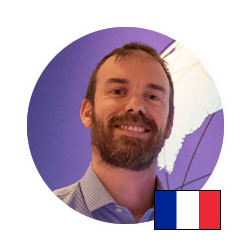
ESRF Grenoble
FRANCE
YANNICK LACAZE
I am a former geologist (MSc in 2004) trained in science communication (MSc in 2006). After working in science communication in different places in France, I have moved to Australia to work as an exploration geologist in 2011 and 2012.
I have been working as a public outreach officer at the ESRF – the European synchrotron (Grenoble – France) since 2013.
I am currently in charge of education, and more particularly managing the Synchrotron@School programme, designed for high school students. Through this programme, the ESRF welcomes each year more than 1500 students.
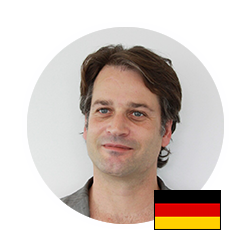
xFEL
GERMANY
CHRISTIAN BRESSLER
Christian Bressler has been developing the field of ultrafast x-ray science over the past 20 years at several synchrotron and free electron laser facilities. He received his PhD from the Free University of Berlin, and spent his postdoctoral period at SRI International in Menlo Park, California. He relocated to Switzerland, where he became 2002 assistant professor for physics at the university of Lausanne and at the Ecole Polytechnique Fédérale de Lausanne (EPFL). In 2009 he moved to Hamburg as Leading Scientist and designed, implemented and inaugurated the Femtosecond X-Ray Experiments Instrument at European XFEL, while pursuing a rigorous research programme in structural dynamics research. This was accompanied by several research campaigns with his group at several FEL and SR facilities leading to an improved instrument design. He has served on several national and international advisory boards, and connected to the scientific community via more than 180 invited presentations and more than 80 publications. His current research interests include structural dynamics of functional molecular materials with an emphasis on understanding their emergent behavior and the influence of solvent molecules surrounding reacting molecules during the ongoing ultrafast reaction.
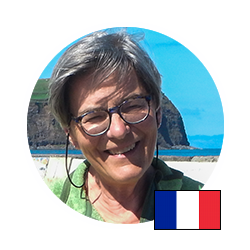
CNRS Paris
FRANCE
EVELYN COTTEREAU
Evelyn Cottereau has an engineering degree from the Ecole Supérieure de Physique et Chimie Industrielles of Paris (France) and received a M.S. degree from Berkeley (USA).
Her work focused on ion implantation and transport of radioactive beams, designing, building and operating scientific apparatus.
She designed and operated the on line radioactive isotope separator PARRNe at the ALTO facility at Institut de Physique Nucléaire at Orsay. She also set up and operated a national facility based on a 3 MV electrostatic tandem along with sample preparation mainly for radiocarbon dating in different fields of application (climate studies, archaeology…). She was in charge of the Andromede facility for surface analysis designed around a 4 MV single ended electrostatic accelerator to accelerate cluster beams.
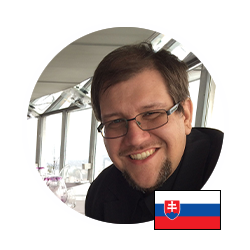
Comenius University in Bratislava
SLOVAKIA
PETER CELEC
Peter Celec is the head of the Institute of Molecular Biomedicine at the Comenius University in Bratislava, Slovakia. He studied medicine, molecular biology and national economy, has PhD in normal and pathological physiology, as well as DSc in molecular biology. His research focuses on extracellular DNA as a biomarker but also on its role in the pathogenesis of inflammatory diseases. Research stays in Germany (Göttingen, Aachen) and USA (Boston) enabled several important and fruitful international collaborations for his interdisciplinary research team. With an h-index of 30 Dr. Celec is one of the most successful researchers in biomedical sciences in Slovakia. His professional motto is: Science must be fun! So, he is proud of the Ig Nobel prize for the research on salivary DNA exchange during kissing.
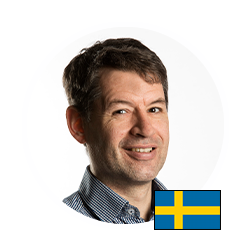
University of Gothenburg
SWEDEN
HENRIK ARONSSON
Professor in Plant Molecular Biology, at the University of Gothenburg, Sweden. He pursued his PhD degree in Plant Physiology at the University of Gothenburg, and graduated in 2001. He spent the following year and a half as a postdoctoral student at Leicester University, Uniterd Kingkom. The next year he spent at Gotland University and Skövde University, Sweden as senior lecturer. He then returned to the University of Gothenburg in 2004. His current research is dedicated to molecular breeding of salt tolerant wheat where the aim is to develop new varieties in a faster and more precise way than before. These varieties can be used for cultivation on salt-contaminated unusable land in e.g. Bangladesh, to increase food production. He has expertise from working with chlorophyll and photosynthesis, protein import complex and protein transport, and lipid and vesicle transport. Moreover, he has published solely bioinformatics papers. He is the founder and owner of two SMEs within the plant biotech area. Currently he is the Head of the Department of the Biological and Environmental Sciences at the University of Gothenburg.
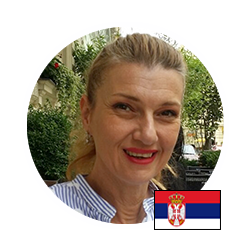
University of Belgrade
SERBIA
LIDIJA MATIJA
Lidija Matija is a professor at the University of Belgrade Faculty of Mechanical Engineering where she received her PhD in Control Engineering in 1997. She has been working in the Institute for Chemical Power Sources, Belgrade, in the field of fullerenes based materials, its production and application for battery production. In 2002 she has changed her field of research and moved to the Institute of Technical Sciences, of SASA where she investigated fullerene and carbon based materials for biomedical applications. In 2005, professor Lidija Matija moved back to the University of Belgrade Faculty of Mechanical Engineering where she joined the group for Biomedical Engineering within the department for control engineering and became the Chair of NanoLaboratory. In the period from 2008 – 2010 she was appointed as Seconded National expert (SNE) in European Commission, DG RTD where she worked as scientific officer. She is a founder of the department for Biomedical engineering at the University of Belgrade Faculty of Mechanical engineering. Her main fields of research are: Control Systems, Early Detection of Skin Cancer and Melanoma, Intelligent Materials, Fullerenes and Carbon Nanotubes, STM/AFM, Nanotechnology, Nanomedicine. Professor Matija’s fields of teaching are: Control Systems, Biomedical Engineering, Nanotechnology, Nanomedicine. She was several times awarded in her country for her research achievements in the field of nanotechnology and she was the coordinator of several national research projects of which more than half had industry involvement.
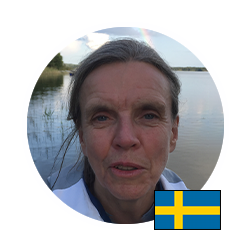
University of Linkoping
SWEDEN
KARIN TONDERSKI
Professor Karin Tonderski received her B.Sc. in Biology and Chemistry from Uppsala University. She completed a Ph.D. studying nutrient recycling in constructed wetlands, and currently works as a lecturer and researcher at the multidiscipinary department of Management and Engineering, Linköping University. Sweden. Her research is focused on applied aspects of nitrogen and phosphorus cycling and recovery, and implications for water management issues. Examples are management of biofertilizers from biogas systems, nutrient cycling in urban agriculture and use of constructed wetlands for greywater treatment in informal urban settlements. She has worked with several research and educational projects in East and South Africa, and Vietnam, with focus on low-cost sanitation and nutrient cycling. Her scientific work has resulted in > 60 peer reviewed publications and around 35 reports and chapters in international books.


